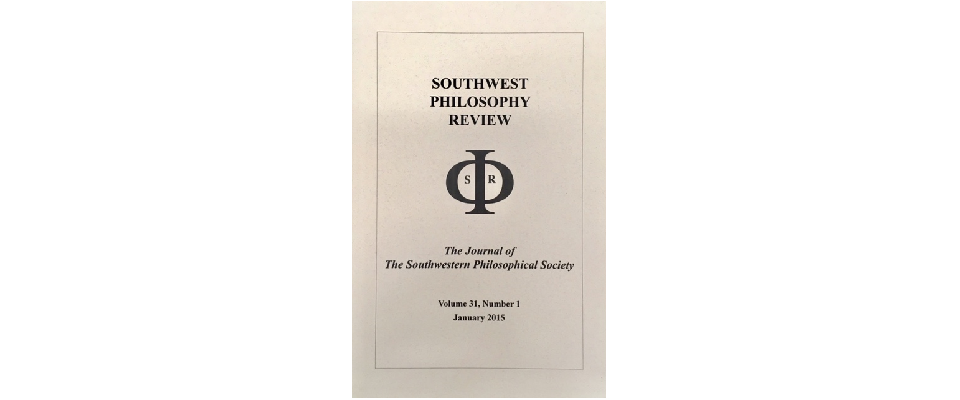Liquid Syllabus
Jessica Kruger, Sarah Vincent, David Gray, Adam Graczyk, and Jacob Chambers authored the article entitled, "Liquid Syllabus: Worth the Effort, or Should We Pour It Down the Drain?"
Animals
Abigail Levin and Sarah Vincent authored the article entitled, "The Life and Death of Freya the Walrus: Human and Wild Animal Interactions in the Anthropocene Era."
The Southern Journal of Philosophy
Sarah Vincent authored the article entitled, "Commentary on Catriona Mackenzie’s ‘Autonomous Agency, We-Agency, and Social Oppression.’"
The Routledge Handbook of Moral Epistemology
Sarah Vincent, Rebecca Ring, and Kristin Andrews authored the chapter entitled, "Normative Practices of Other Animals."
The Routledge Handbook of Philosophy of Animal Minds
Sarah Vincent and Shaun Gallagher authored the chapter entitled, "From False Beliefs to True Interactions: Are Chimpanzees Socially Enactive?"
The Southwest Philosophy Review
Sarah Vincent authored the article entitled, "Interspecies Intersubjectivity: On its Possibilities and Limitations."
Dimensions of Moral Agency
Sarah Vincent authored the chapter entitled, "The Myth of the Mental (Illness)."







